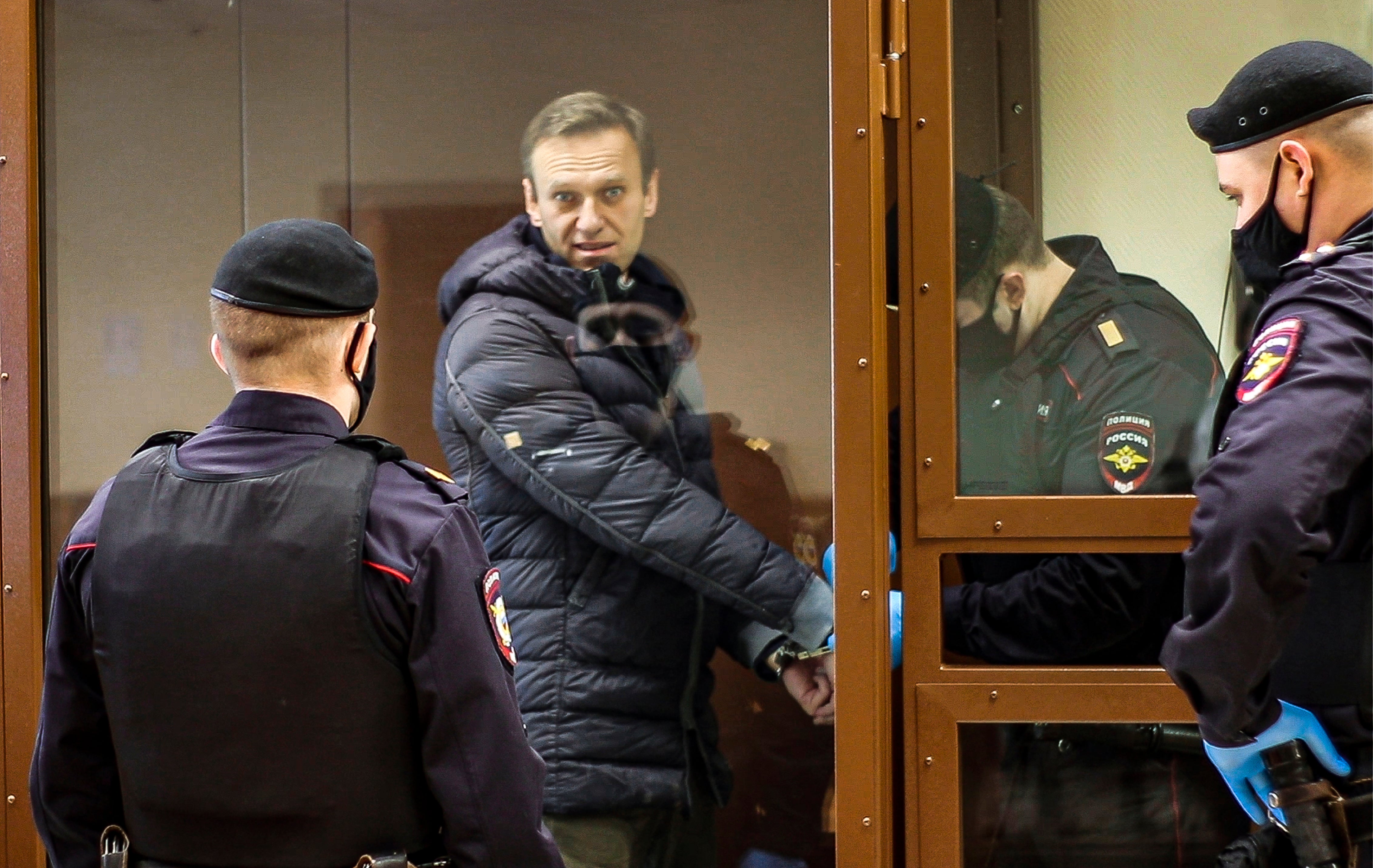European human rights court demands Russia release Navalny
Europe’s top human rights court has ordered Russia to release jailed opposition leader Alexei Navalny immediately, a ruling that will be unlikely to soften the Kremlin’s determination to isolate its most prominent foe

Europe's top human rights court has ordered Russia to release jailed opposition leader Alexei Navalny a ruling that will be unlikely to soften the Kremlin s determination to isolate its most prominent foe.
The ruling by the European Court of Human Rights that was posted on Navalny's website on Wednesday demands that Russia set him free immediately and warns that failing to do so would mark a breach of the European human rights convention.
Navalny, 44, an anti-corruption investigator and President Vladimir Putin's most prominent critic, was arrested last month upon returning from Germany, where he spent five months recovering from a nerve-agent poisoning that he blames on the Kremlin. Russian authorities have rejected the accusation.
Earlier this month, a Moscow court sentenced Navalny to two years and eight months in prison for violating terms of his probation while recuperating in Germany. The sentence stems from a 2014 embezzlement conviction that Navalny has rejected as fabricated and the European court has ruled to be unlawful.
In its Tuesday's ruling, the ECHR pointed to Rule 39 of its regulations, citing “the nature and extent of risk to the applicant's life.”
The Russian Justice Ministry warned in a statement carried by the Tass news agency that the ECHR's demand referencing the rule would represent a “crude interference into the judicial system” of Russia and “cross the red line.”
It emphasized that “the ECHR can't substitute a national court or cancel its verdict.”
In the past, Moscow has abided by the ECHR's rulings awarding compensations to Russian citizens who have contested verdicts in Russian courts, but it never faced a demand by the European court to set a convict free.
In a reflection of its simmering irritation with the European court's verdicts, Russia last year adopted a constitutional amendment declaring the priority of national legislation over international law. Russian authorities might now use that provision to reject the EHCR's ruling.
Navalny’s arrest and imprisonment fueled a wave of protests across Russia. Authorities responded with a sweeping crackdown, detaining about 11,000 people, many of whom were fined or given jail terms ranging from seven to 15 days.
Russia has rejected Western criticism of Navalny’s arrest and the crackdown on demonstrations as meddling in its internal affairs.
Bookmark popover
Removed from bookmarks